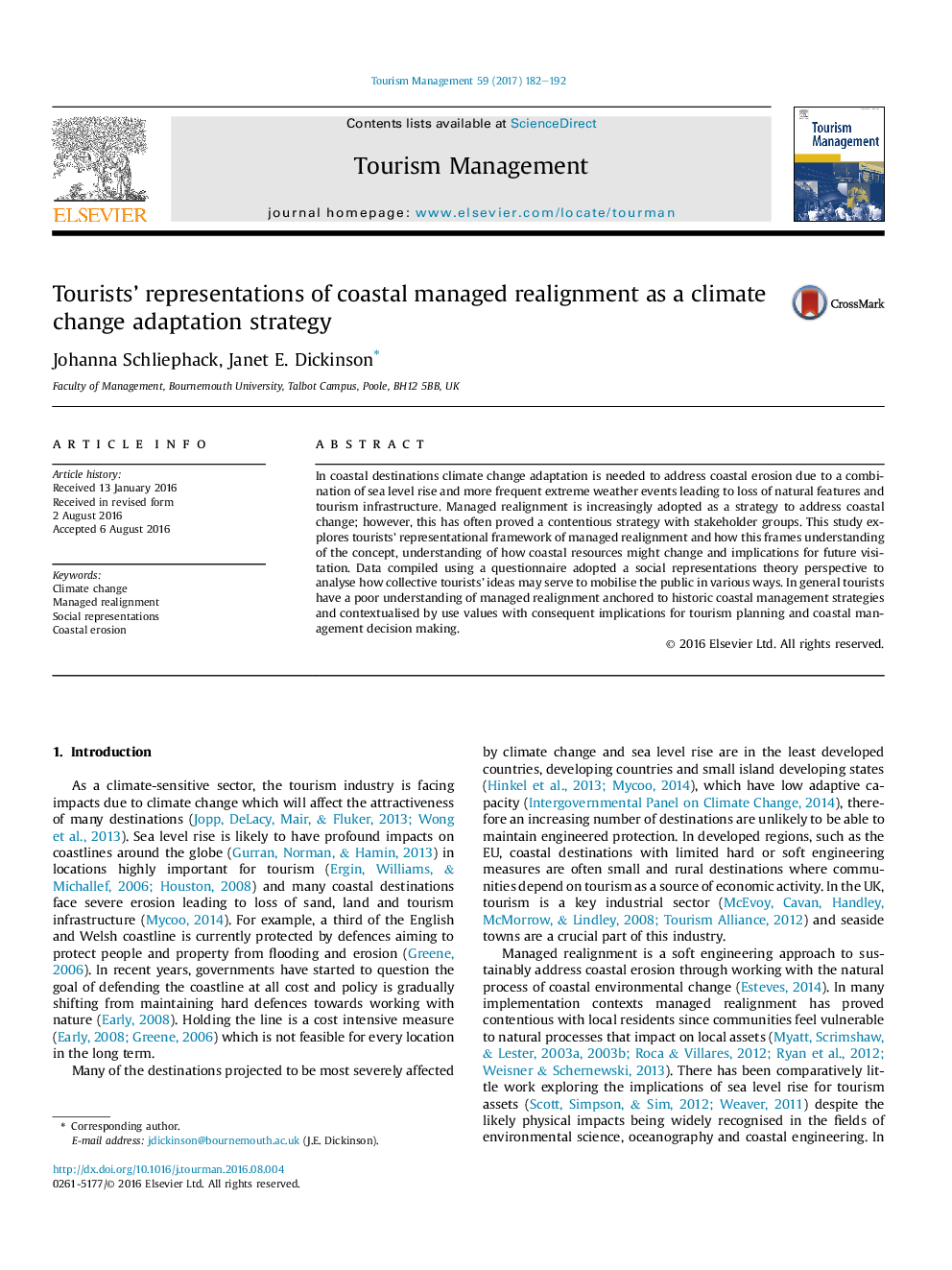| Article ID | Journal | Published Year | Pages | File Type |
|---|---|---|---|---|
| 1011810 | Tourism Management | 2017 | 11 Pages |
•Tourists have a poor understanding of managed realignment.•Managed realignment is anchored to existing ideas of coastal protection.•There is some variation in the representation aligned to amenity use values.•The representation has the power to mobilise the public in various ways.
In coastal destinations climate change adaptation is needed to address coastal erosion due to a combination of sea level rise and more frequent extreme weather events leading to loss of natural features and tourism infrastructure. Managed realignment is increasingly adopted as a strategy to address coastal change; however, this has often proved a contentious strategy with stakeholder groups. This study explores tourists' representational framework of managed realignment and how this frames understanding of the concept, understanding of how coastal resources might change and implications for future visitation. Data compiled using a questionnaire adopted a social representations theory perspective to analyse how collective tourists’ ideas may serve to mobilise the public in various ways. In general tourists have a poor understanding of managed realignment anchored to historic coastal management strategies and contextualised by use values with consequent implications for tourism planning and coastal management decision making.
